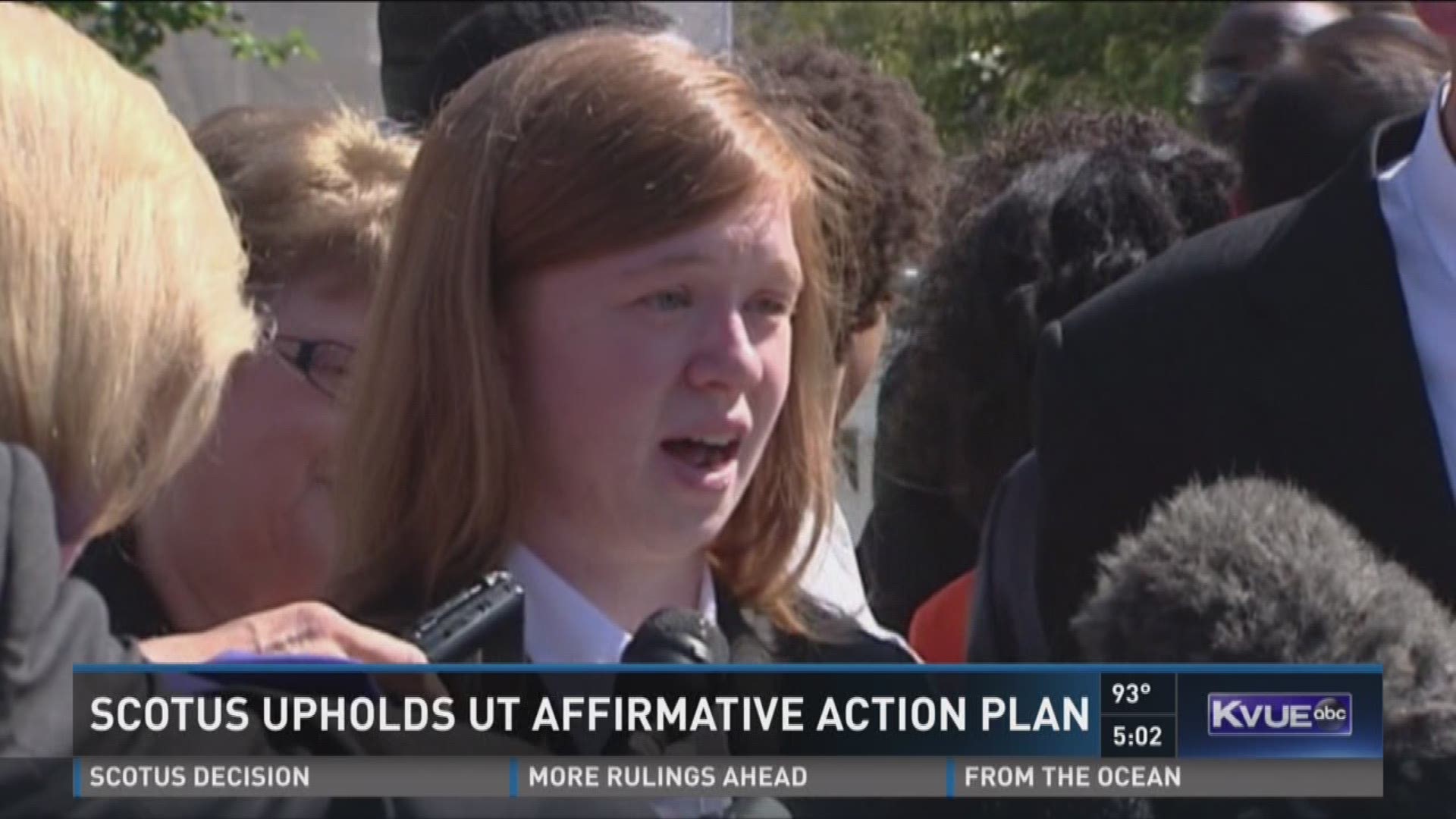The U.S. Supreme Court ruled Thursday that the University of Texas could continue using affirmative action as part of its admissions process in the case, Fisher v. University of Texas Austin.
The Supreme Court said that “the race-conscious admissions program in use at the time of the petitioner’s application is lawful under the Equal Protection Clause.”
The case revolved around Abigail Fisher who was denied entry into UT. Fisher claimed that she was rejected because she is white, but that claim was rejected by the district court, the Fifth Circuit Court of Appeals, and finally on Thursday the U.S. Supreme Court.
The Court noted that the program that had the largest impact on Fisher’s chance to get into the University of Texas was not affirmative action, but rather the Top Ten Percent Plan. That plan was put in place by the state legislature and offers admission to any students who graduate high school in Texas in the top 10% of their class. The school fills in the freshman class using a variety of other factors including a “Personal Achievement Index” which includes race.
Fisher was not in the top 10% of her class, so she fell into the other portion of the potential freshman class. The Supreme Court said because Fisher didn’t challenge the percentage part of the plan, “the record is devoid of evidence of its impact on diversity.”
In addition, the Court said the University “lacked authority to alter the percentage plan, which was mandated by the legislature. These circumstances refute any criticism that the University did not make good efforts to comply with the law.”
But in a key phrase that applies to other schools as well, Justice Anthony Kennedy writing the majority opinion said, “The University, however, does have a continuing obligation to satisfy the strict scrutiny burden: by periodically reassessing the admission program’s constitutionality, and efficacy, in light of the school’s experience and the data it has gathered since adopting its admissions plan, and by tailoring its approach to ensure that race plays no greater role than is necessary to meet its compelling interests.”
Based on those principles, the Court ruled that Fisher, “has not shown by a preponderance of the evidence that she was denied equal treatment at the time her application was rejected.”
KVUE News talked to students and staff on the UT campus. They had mixed opinions.
"I don't think that race should be an issue on who gets admitted or who doesn't," said Kylie Thai, UT student.
"I think diversity benefits conversation and in places of learning. I think that diversity is a total asset," said Elise Nacca, UT Staff Member.
The 4-3 decision was delivered by Justice Kennedy who was joined by Justices Ruth Bader Ginsburg, Sonia Sotomayor, and Stephen Breyer. Justices Clarence Thomas and Samuel Alito dissented along with Chief Justice John Roberts.
University of Texas President Greg Fenves reacted on Twitter saying he was “pleased” with the Supreme Court’s decision.
Diversity is essential to carry out UT's public mission to provide the highest quality education for every student: https://t.co/35krpWb4PV
— Greg Fenves (@gregfenves) June 23, 2016
Texas Attorney General Ken Paxton disagreed with the court's decision and said in a statement:
“Less than 10 years ago, the Supreme Court said that ‘[t]he way to stop discrimination on the basis of race is to stop discriminating on the basis of race. Sadly, the Court today has departed from that guiding principle. The University of Texas is one of the finest educational institutions in the world. The opportunities it offers should be available to all students based on their merit, not the color of their skin.”
Abigail Fisher, the young woman at the heart of the case, issued a statement after the court's decision struck down her claims that read:
“I am disappointed that the Supreme Court has ruled that students applying to the Univ. of Texas can be treated differently because of their race or ethnicity. I hope that the nation will one day move beyond affirmative action.”
The full decision can be read below:

